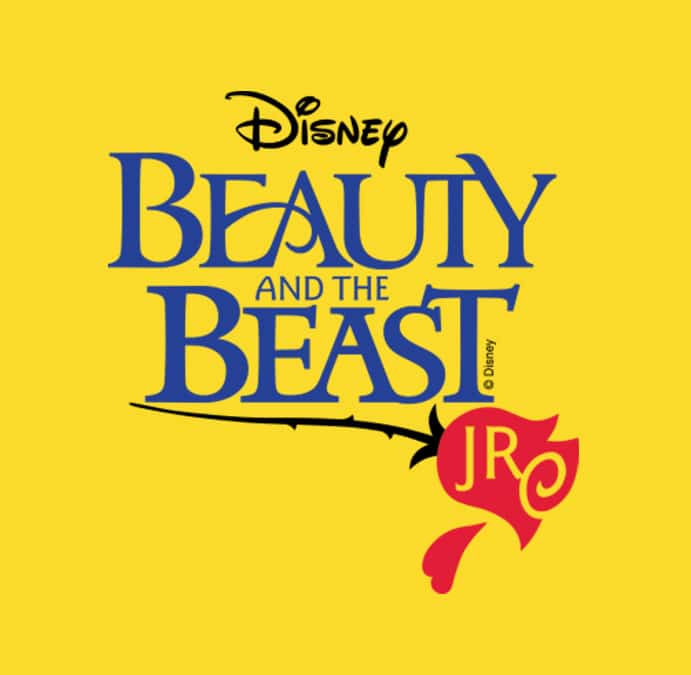I am always searching for opportunities and activities that will help nurture and develop important life skills for my children particularly when they help build confidence. In a previous blog I wrote about one avenue that has significantly shaped my children’s growth, which is their involvement in theatre training. While theatre training has a myriad of benefits for students, I have also seen it be a transformative force in honing public speaking skills for students. As a performing arts studio owner, I have witnessed students go from shy, hesitant speakers to confident communicators. In this blog I discuss the profound connection between the dramatic arts and effective verbal expression, and how theatre training can help shape poised, articulate individuals and confident public speakers. These skills extend far beyond the spotlight of the stage into the realms of academics, social interactions, and future professional endeavors.
Before diving into the role of theatre classes in public speaking training, let’s talk about why public speaking skills are important for students. Effective communication is a cornerstone of success in both educational and professional settings. Students who can articulate their thoughts with clarity and confidence are better equipped to excel in class presentations, job interviews, and leadership roles. Building that confidence also helps them in their building healthy peer relationships.
Public speaking also fosters self-confidence and empowers students to express their ideas compellingly. It helps them develop critical thinking skills, as articulating thoughts coherently requires a deep understanding of the subject matter. Beyond the classroom, these skills are transferable to various aspects of life, contributing to personal and professional growth.
The Connection Between Theatreand Public Speaking |
|
|
THEATRE TRAINING SKILL |
PUBLIC SPEAKING SKILL |
|
Voice Modulation and Projection |
Helps convey emotions, capture attention, and emphasize key points. |
|
Body Language and Non-Verbal Communication |
Body language, facial expressions, and gestures help convey messages effectively. |
|
Confidence Building |
Helps overcome stage fright and remain poised and assured. |
|
Improvisation and Adaptability |
Teaches how to think on one’s feet and maintain composure in high-pressure situations. |
|
Emotional Intelligence |
Helps to connect with an audience on a deeper level. |
|
Overcoming Fear and Building Resilience |
Teaches how to embrace challenges and view them as opportunities for growth. |
|
Enhanced Empathy and Understanding |
Develops the ability to understand and empathize with a wide range of experiences. |
|
Cultural Awareness and Inclusivity |
Having a broadened perspective enhances one’s ability to communicate with individuals from diverse backgrounds. |
Theatre, as an art form, is a multifaceted discipline that encompasses acting, voice modulation, body language, and emotional expression. Engaging in theatre classes provides a unique platform to cultivate the skills that support effective public speaking skills for students. These skills include:
- Voice Modulation and Projection: One of the key components of public speaking is the mastery of vocal nuances. The ability to modulate one’s voice to convey emotions, capture attention, and emphasize key points is crucial to great public speaking. Theatre classes emphasize vocal exercises that explore pitch, tone, volume, and pace. These things help students refine the technical aspects of their vocal delivery and explore the full range of their voices. It also deepens their understanding of how to infuse words with emotion and meaning. Whether projecting to the back of a theatre or delivering a persuasive speech, students trained in theatre learn to utilize their voices with precision and become effective communicators in public speaking scenarios.
- Body Language and Non-Verbal Communication: In public speaking, non-verbal cues often speak louder than words. Every gesture and expression adds to the depth of what is being spoken and non-verbal cues become extremely important. Theatre classes help students master non-verbal expression by exploring body language, facial expressions, and gestures in conveying messages effectively. Students learn to use their bodies as instruments of communication, fostering a heightened awareness of how posture, gestures, and movement influence audience perception. Through training in classes and performance experiences, students develop an awareness to the subtleties that can either enhance or detract from their overall message. This equips students with a versatile skill set that transcends the stage, proving invaluable in academic presentations, interpersonal interactions, and professional endeavors.
- Confidence Building: Theatre classes are an unparalleled arena for building confidence. They expose students to the challenge of performing in front of an audience, helping them overcome stage fright and develop resilience in the face of public scrutiny. The experience of facing an audience, often a source of anxiety for many, becomes a catalyst for personal growth and self-discovery and in turn helps to build confidence. This growth of confidence extends beyond the stage, equipping students to navigate various real-life situations with poise and assurance. Whether articulating ideas in a classroom, participating in group discussions, or public speaking, students find themselves equipped with a newfound self-assuredness.
- Improvisation and Adaptability: Public speaking often demands the ability to think on one’s feet and adapt to unexpected situations. Theatre classes, especially those that incorporate improvisational exercises, teach students to embrace spontaneity and develop quick thinking. Improvisation exercises help students learn how to respond to unexpected cues and challenges with confidence and creativity. Developing a mindset that is adaptable and resilient will help students be able to pivot seamlessly when presented with challenges while public speaking such as unforeseen questions, technical glitches, or sudden shifts in audience dynamics. Theatre trained individuals will be adept at maintaining composure in these high-pressure situations, demonstrating an ability to think critically and respond effectively on the spot.
- Emotional Intelligence: Theatre is an exploration of human emotions. Participating in theatre training and performances enhances students’ emotional intelligence. Understanding and authentically portraying different emotions on stage cultivates empathy, a crucial aspect of effective communication. As students explore the motivations, struggles, and joys of diverse characters, they gain a nuanced understanding of the human experience. This heightened emotional intelligence translates into the ability to connect with an audience on a deeper level during public speaking engagements. Theatre trained students will bring a unique depth to their public speaking skills, as it helps them tap into the shared human experience making their message more relatable and memorable.
- Overcoming Fear and Building Resilience: Fear of public speaking is a common hurdle that many students face. There is often anxiety associated with standing in front of an audience, and theatre classes provide a controlled environment for students to confront and conquer this fear. Various exercises help students to embrace vulnerability and uncertainty while speaking in front of an audience. Each exercise and performance is a stepping stone towards building confidence in the face of an initially intimidating task. By participating in this kind of training and/or repeatedly stepping onto the stage, students build resilience, and learn to embrace challenges and view them as opportunities for growth.
- Enhanced Empathy and Understanding: Theatre involves the exploration of diverse characters and perspectives. Students delve into the intricacies of characters that span different cultures, historical periods, and social backgrounds. Engaging with different roles and scenarios enhances students’ ability to understand and empathize with a wide range of experiences. This heightened empathy contributes to more effective communication, as students become attuned to the needs and perspectives of their audience. As students walk in the shoes of characters with varied experiences, they gain an understanding of the multifaceted nature of the human condition. In the area of public speaking, this empathetic understanding becomes a crucial asset, allowing individuals to bridge gaps in understanding and create a more inclusive and impactful dialogue with their audience.
- Cultural Awareness and Inclusivity: Theatre classes play a pivotal role in nurturing cultural awareness and fostering inclusivity by providing students with opportunities to explore diverse perspectives and narratives. Through the study of theatrical works that highlight various cultures, histories, and social issues, students learn to embrace different cultural contexts, fostering empathy and dismantling stereotypes. It gives them the practical skills needed to communicate effectively and respectfully with individuals and audiences from diverse backgrounds. In our interconnected world, this heightened cultural awareness becomes an invaluable skill, equipping students to navigate and contribute meaningfully to a diverse and multicultural society.
As you can see, theatre classes serve as a great training ground for the cultivation of public speaking skills for students and offer growth opportunities that extend beyond the boundaries of the stage. By exploring voice modulation, body language, confidence building, improvisation, and emotional intelligence, students engaged in theatre education are not only better prepared for public speaking engagements but also emerge as well-rounded individuals poised for success in various aspects of their lives. Theatre training is an investment in the development of confident, articulate, and empathetic humans.
At my performing arts studio, Big Star Studios, our instructors are dedicated to guiding students in nurturing these invaluable life skills. With a broad spectrum of classes encompassing theatre, singing, dancing, music, and more, we are dedicated to cultivating a generation of confident, empathetic, and reflective young individuals through the transformative power of the performing arts.
Establishing and overseeing the operations of Big Star Studios, including the management of our dedicated staff, students, and their families, brings me immense joy. Witnessing the transformation of initially timid and reserved children as they immerse themselves in the rich values of theater is truly gratifying. Observing their journey from hesitant newcomers to remarkably capable and self-assured performers on stage is a compelling motivation for both my team and me to persist in this endeavor. Fostering confidence in our students ranks among our foremost objectives. If you reside in the Seattle/Snoqualmie area and seek opportunities to enrich your child’s life while fostering essential life skills such as public speaking, we invite you to join us for a class, allowing you to personally experience these compelling reasons and discover even more facets of our wonderful studio community!
Author:
Corey Schwarz
Executive Director, Big Star Performing Arts Studio
425-292-3342
corey@bigstarstudios.com


